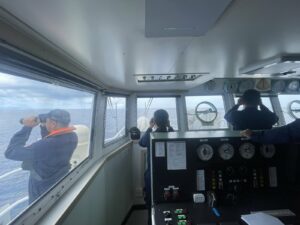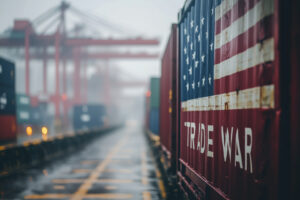Sea Cargo Charter discloses the emissions data from shipping companies´ activities in its report in which it is shown that signatories are measuring and reporting their climate impact as an essential first step towards reducing emissions, but more needs to be done in order to fulfil their climate ambitions.
In this second edition of the Sea Cargo Charter annual disclosure report, the average climate alignment of signatory companies is at the same level as in 2021 but the variation of data has decreased significantly, as Sea Cargo Charter highlights. This is due to several reasons, including changes carried out to the chemical and liquified gas tanker baselines, as well as trade patterns and better operational efficiency, the climate initiative’s report shows.
The Sea Cargo Charter, a framework for assessing and disclosing the climate alignment of chartering activities, says the 33 signatories account for more than 17% of total bulk cargo transported by sea over the year, and their average reporting rate has increased since last year to 90%.
It is noted that the signatories have different portfolios, different ship types and different numbers of voyages, different operational and trade profiles with particular trade characteristics that affect their annual activity alignment.
“While achieving full decarbonisation by 2050 may seem far off, the maritime industry is well aware of the importance of decisions taken now in order to achieve this goal. The data in the Sea Cargo Charter report shows Signatories’ dedication to measuring and reporting transparently their climate impact as an essential first step towards reducing emissions,” says Rasmus Bach Nielsen, Chair of the Sea Cargo Charter Association and Global Head of Fuel Decarbonisation at Trafigura.
Mr. Nielsen hopes and believes the International Maritime Organization (IMO) will agree on more ambitious targets at the upcoming Marine Environment Protection Committee meeting (MEPC80) in July.
“Achieving these reduction targets is essential for the industry to play its role in addressing climate change, and it will require an appropriate policy framework that allows companies to take the commercial decisions needed to accelerate decarbonisation and it will also assist Sea Cargo Charter in establishing future enhanced baseline targets,” he says.
He highlights the importance of a regulatory framework. “The key is that while it is fine to have big targets we also need a regulatory framework where it can be realistic to reach these,” he says.
At the association’s annual meeting in April, Signatories continued the ongoing discussion of how to make the reporting more robust and whether to raise the ambition level. However, many members were keen to wait for the outcome of the MEPC80 meeting, as the results will have big implications on the industry’s ability to deliver on the Paris Agreement temperature increase goal.
Eman Abdalla, Vice Chair of the Sea Cargo Charter Association and Global Operations Director at Cargill Ocean Transportation calls all industry stakeholders to have common alignment and transparency on emissions.
“To make our voice louder, we are looking to open up our membership scope to not only charterers and cargo owners but also shipowners so that they can join us and make the Sea Cargo Charter a truly industry-wide initiative where we together unite and work towards one global transparent and standardized emission reporting system,” she says.



